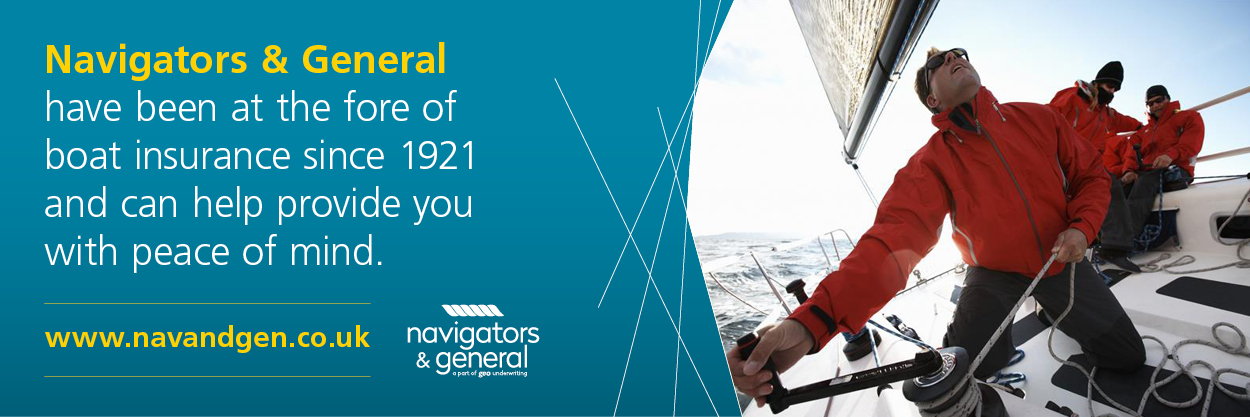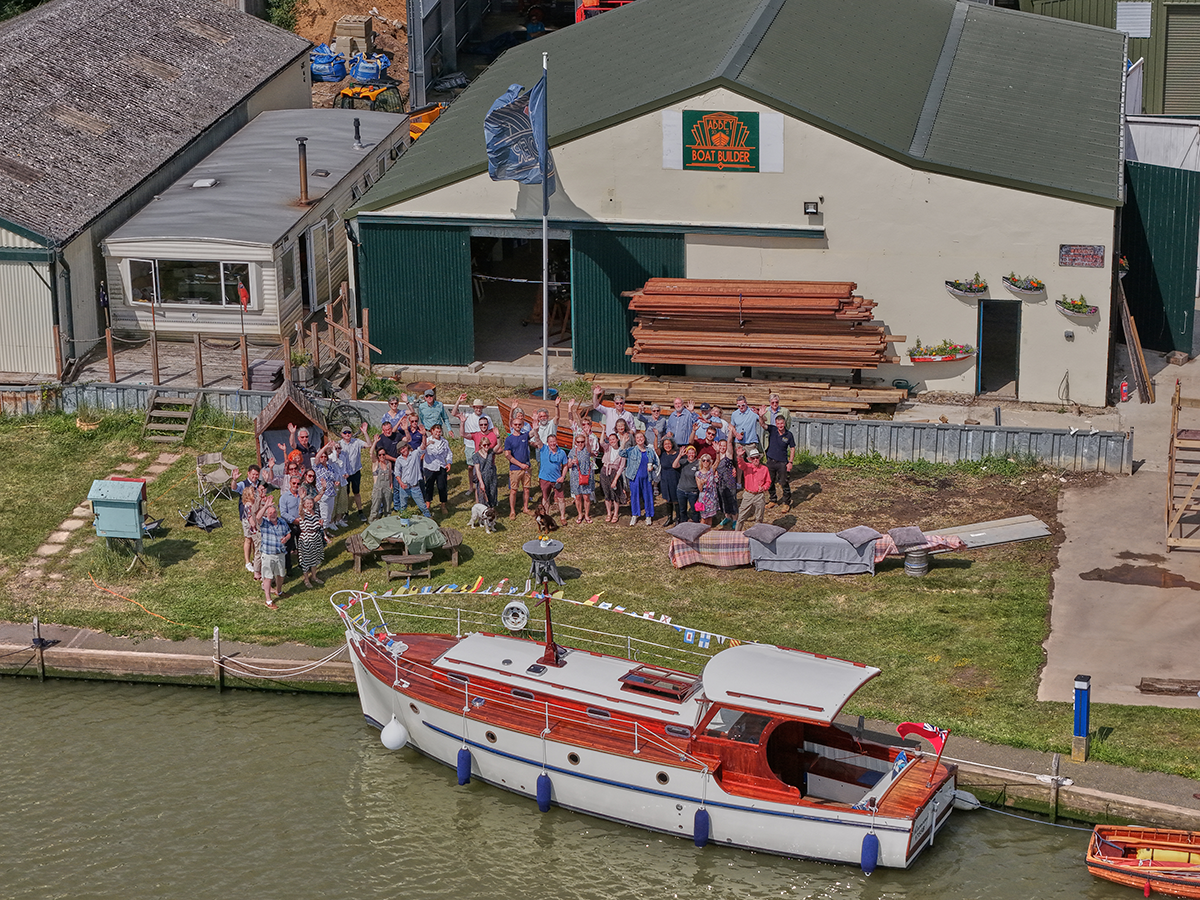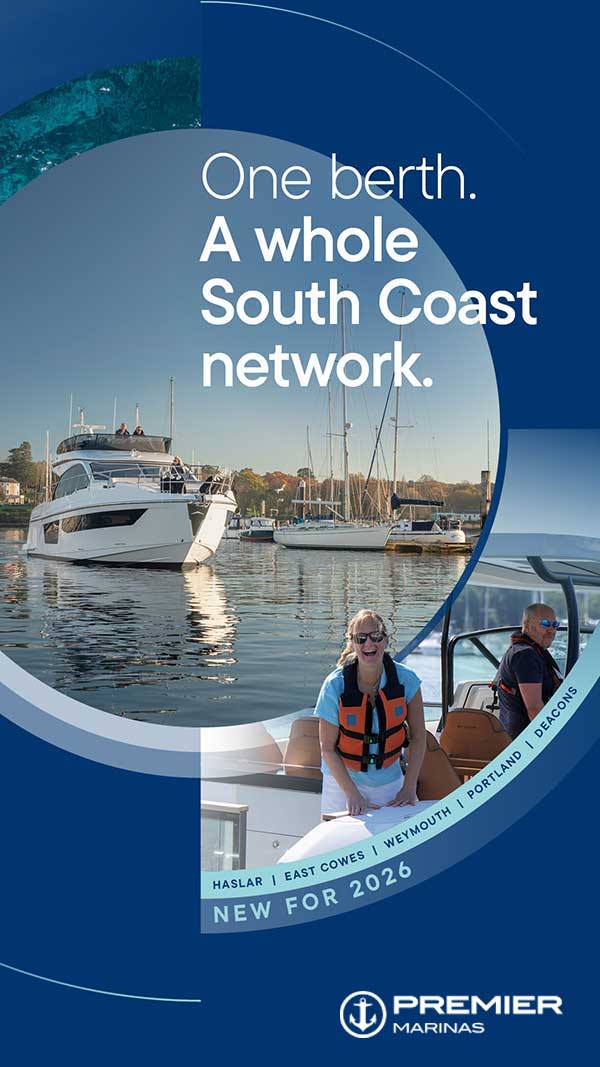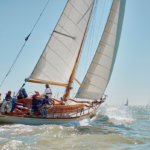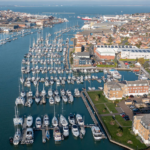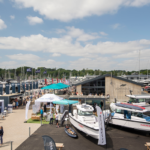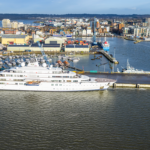A total of 60 influential names in British Wooden Boat Building and Heritage Marine Engineering gathered at the riverside boatyard in Reedham, Norfolk. They were drawn together from across the country by Abbey’s award-winning craft, and the promise of dialogue about the state of the heritage boat building and marine engineering industry.
Abbey set up her Norfolk yard in 2021, and with her award-winning restorations the business has gone from strength to strength. Out-growing her premises in Dilham has meant that Abbey’s yard has moved to an idyllic Broads setting – with a hugely expanded storage and workshop area as well as extensive hard-standing, crane facility and on-site accommodation. It’s the dream set-up.
And the range of boats on display were also a dream, including the ‘Guide of Dunkirk’ – the Girl Guides lifeboat that was taken to be a Dunkirk Little Ship. ‘Guide of Dunkirk’ has been bought by Abbey herself, and will be restored by the gender-diverse team on site, but also used to offer local women and youth the opportunity to find out about the craft, heritage boatbuilding and even get hands-on.
However some local news coverage was of yard closures, rather than celebrating a hugely successful local yard. National bodies responsible for leisure boatbuilding are prioritising the export market of GRP builds on the South Coast, Naval vessels and saving commercial shipyards. Many feel there is no focus on the heart and soul of UK traditional Shipwrights, Boatbuilders, Riggers and Engineers.
In the last three years, there have been three significant reports released which reference the skills shortage in boatbuilding, and training challenges. In May, MP Edward Morello spoke about the need for investment in a Westminster debate.
• The Craft Association and Wooden Boat Trade Association report – resulting in Traditional Boatbuilding listing on the Red List of Endangered Craft. In 2025, traditional rigging and figure-head carving joined the list.
• The National Shipbuilding Office Shipbuilding Skills Report
• National Historic Ships Report – commissioned by Heritage Lottery
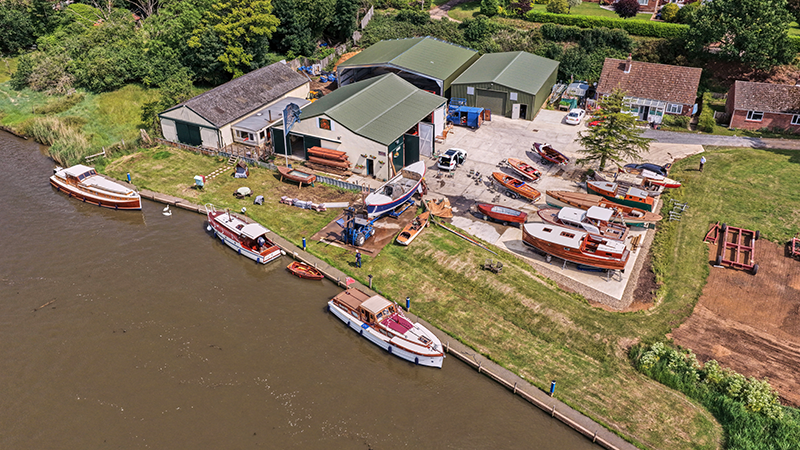
Current national bodies have failed to lead a response to the growing evidence that this industry needs to be prioritised to ensure the continued supply of a skilled workforce. And also failed to see the importance and opportunity of a more unified approach to promoting the skills of traditional British Boat Builders and yards like Abbey Boatbuilder alongside modern boatbuilding.
Taking the future into their own hands, a new era of collaboration across the traditional industry intends to remedy this.
Abbey Boatbuilder, host of the event and owner of the yard, said: “It was truly fantastic to see everyone together on 14 June. Our industry goes un-noticed and rarely receives positive press or recognition but it was clear to see from the turn out that our industry is thriving and growing despite the lack of training, support and funding. We are all working together to keep these skills alive and to make sure our beautiful industry prospers into the future. We are determined to bring our industry to a wider audience and with all the support shown after Saturdays event we will certainly be making waves in the coming years. Watch this space.”
To raise the profile and needs of the traditional and wooden boatbuilding industry going forward, a collaborative voice is being formed with the dual aim of preserving the heritage marine engineering craft of all traditional boatbuilding, whilst also championing traditional materials and techniques for the future.
Speaking at the event was Jim Dines – Founder of the Heritage Marine Foundation: “It was good to see so many likeminded people gathered with the same aims and concerns. Since the restoration of the Cutty Sark we have been concerned about how we bring more young people into the traditional vessel industry not just boatbuilders but riggers, oar & sparmakers, engineers, fabricators and finishers. With Rigging finally being added to the list of endangered skills we feel that the threat to these skills is now at least recognised.
“We need to make the UK aware that there is a shortage of young people entering the industry and to bring it to the attention of young people that there is a viable career path in the industry. The skills learned in conserving, maintaining and operating traditional vessels of all types are transferable across the board into modern vessels both sail and motor as well as the commercial industry, this is not the case the other way round.”
Belinda Joslin – Founder of Women in Boat Building – CIC supporting women working hands-on in boatbuilding and related marine trades globally, and Shadow Board member of the National Shipbuilding Office Shipbuilding Enterprise for Growth Industry Board, said: “For two years I’ve been lobbying the National Shipbuilding Office for a response to the placing of Traditional Boatbuilding on the Red List – they’ve made it clear it’s not their priority, but it is ours. We have an ageing skilled workforce and we need young people to fall in love with the joy of boatbuilding and all its related skill-sets. People are in this industry because they LOVE it – it’s a life-style choice, and a calling. The Heritage skills are the heart and soul of our industry, captivating children’s imagination for life. Without young people learning the skills, key parts of our nation’s heritage and culture will literally sink. So we need to work together as a collective of yards, colleges, individuals – to do what the industry bodies are not doing.”






